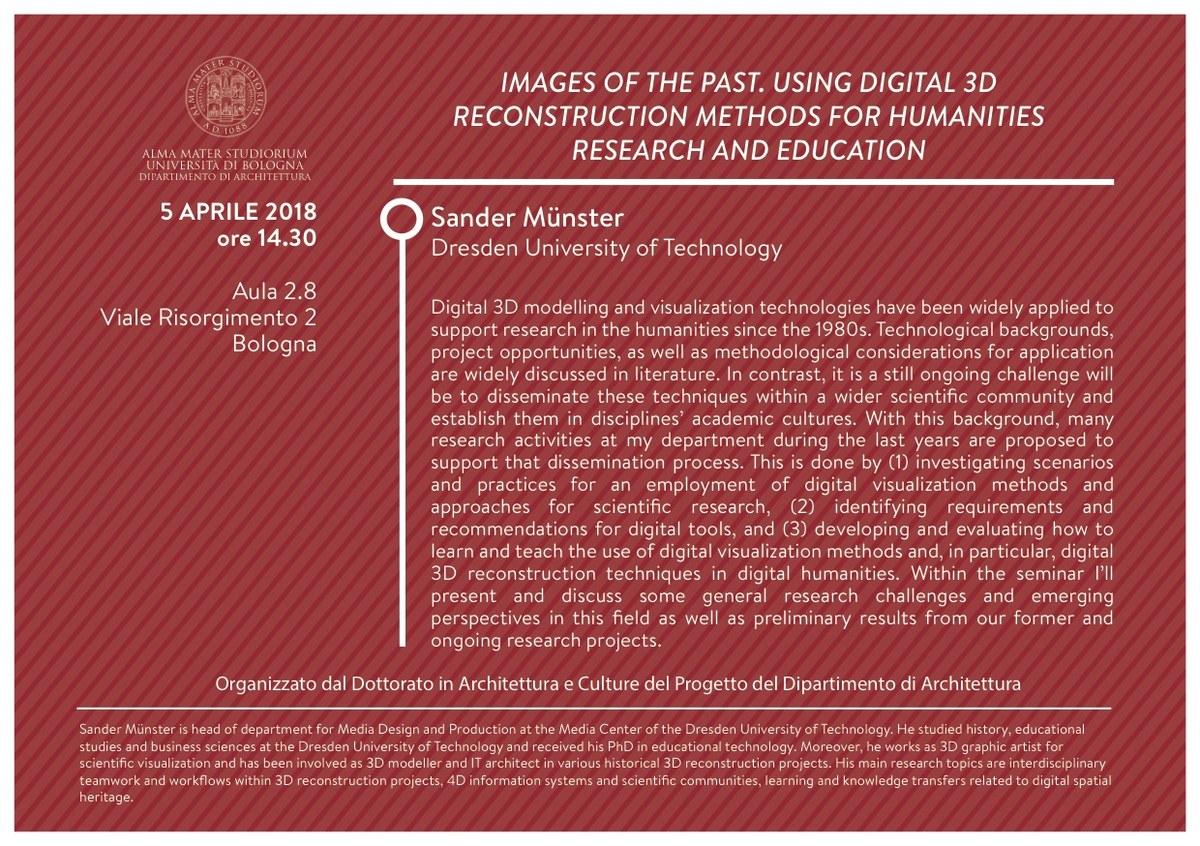IMAGES OF THE PAST. USING DIGITAL 3D RECONSTRUCTION METHODS FOR HUMANITIES RESEARCH AND EDUCATION
Seminario
-
Data: 05 APRILE 2018 dalle 14:30 alle 16:30
-
Luogo: Aula 5.6, Viale Risorgimento 2, Bologna
-
Tipo: Seminari

REFERENTE: FABRIZIO APOLLONIO
CREDITI: 0.5
Sander Münster (Dresden University of Technology)
Digital 3D modelling and visualization technologies have been widely applied to support research in the humanities since the 1980s. Technological backgrounds, project opportunities, as well as methodological considerations for application are widely discussed in literature. In contrast, it is a still ongoing challenge will be to disseminate these techniques within a wider scientific community and establish them in disciplines’ academic cultures. With this background, many research activities at my department during the last years are proposed to support that dissemination process. This is done by (1) investigating scenarios and practices for an employment of digital visualization methods and approaches for scientific research, (2) identifying requirements and recommendations for digital tools, and (3) developing and evaluating how to learn and teach the use of digital visualization methods and, in particular, digital 3D reconstruction techniques in digital humanities. Within the seminar I’ll present and discuss some general research challenges and emerging perspectives in this field as well as preliminary results from our former and ongoing research projects.
Sander Münster is head of department for Media Design and Production at the Media Center of the Dresden University of Technology. He studied history, educational studies and business sciences at the Dresden University of Technology and received his PhD in educational technology. Moreover, he works as 3D graphic artist for scientific visualization and has been involved as 3D modeller and IT architect in various historical 3D reconstruction projects. His main research topics are interdisciplinary teamwork and workflows within 3D reconstruction projects, 4D information systems and scientific communities, learning and knowledge transfers related to digital spatial heritage.